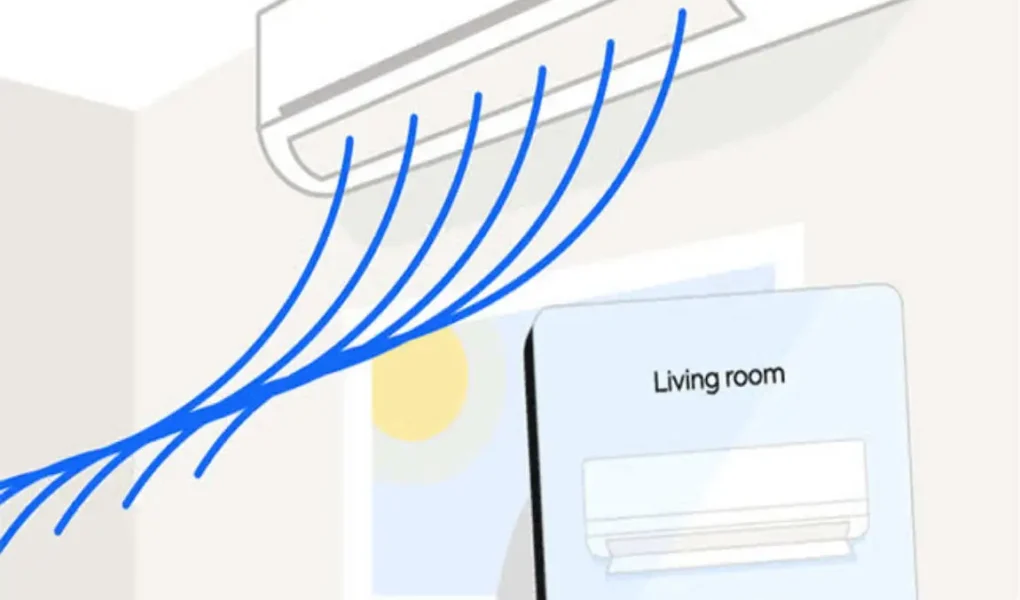Have you ever noticed that your home feels damp or humid even when your air conditioner is running? You’re not alone. Many homeowners experience this frustrating issue, but understanding the causes can help you maintain a comfortable and healthy indoor environment.
We’ll explore the common reasons behind dampness when your AC is on, the potential health and structural risks associated with persistent moisture, and step-by-step solutions to fix the home problem. By the end of this article, you’ll have a clear understanding of why your house might feel damp with the AC on and how to address the issue effectively.
Understanding How Air Conditioners Work
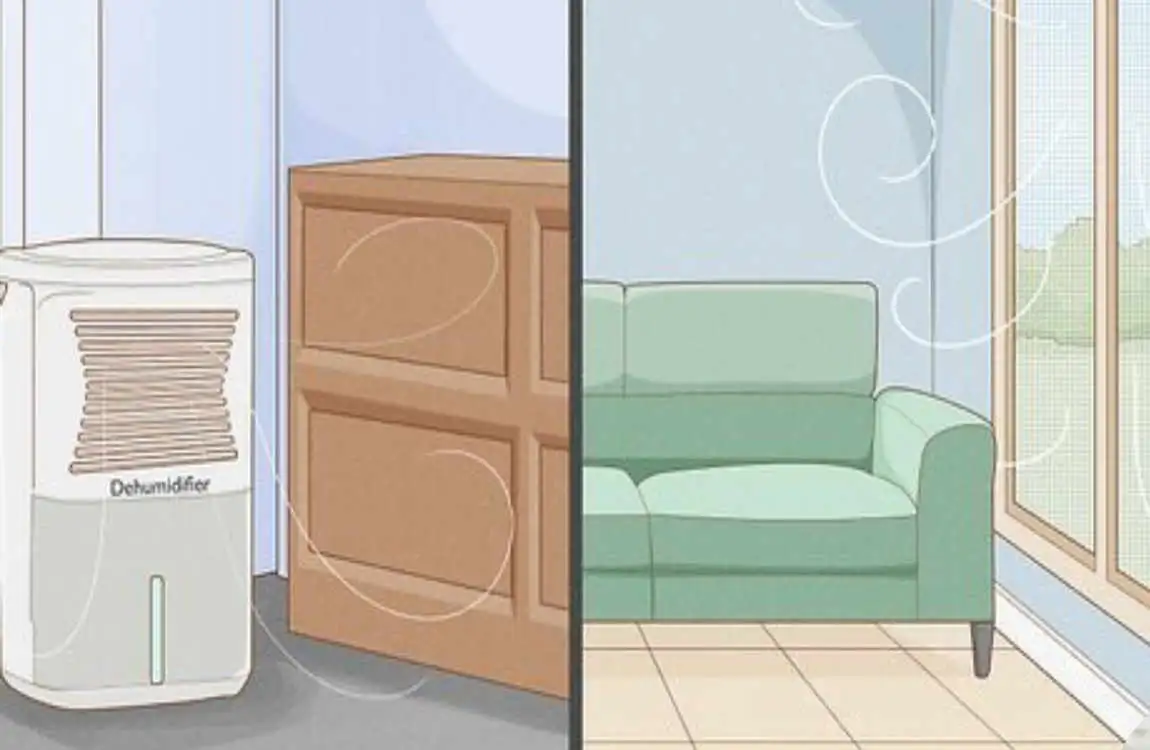
Before diving into the specific reasons for dampness, let’s take a moment to understand how air conditioners function. At their core, AC units cool and dehumidify the air in your home.
The Basics of Air Conditioning
An air conditioner works by absorbing heat and moisture from the indoor air. As warm air passes over the cold evaporator coil, the temperature drops, causing the moisture in the air to condense. This condensed water is then drained away through a condensate line.
The Role of Humidity and Dampness
Humidity is the amount of moisture in the air. When the air in your modern home is too humid, it can feel damp and uncomfortable. Air conditioners help control humidity by removing moisture from the air during cooling.
Common Reasons Why Your House Feels Damp with AC On
Now that we have a basic understanding of how AC units work, let’s explore the common reasons why your house might feel damp even when the AC is running.
Improper AC Sizing and Installation
How AC Size Affects Humidity
An air conditioner that is too large or too small for your luxury home can lead to issues with humidity control. An oversized unit will cool the air quickly but may not run long enough to effectively remove moisture. On the other hand, an undersized unit may struggle to meet cooling and dehumidification demands.
The Impact of Installation
Incorrect installation can also contribute to dampness issues. If the AC unit is not sized correctly or installed, it may not be able to effectively control humidity levels in your home.
Poor Drainage or Clogged Condensate Line
The Role of the Condensate Line
The condensate line plays a crucial role in removing water from your air conditioner. When the AC unit removes moisture from the air, the water is collected and drained away through this line.
Clogged Drains and Moisture Buildup
If the condensate line becomes clogged, it can lead to moisture buildup and dampness in your home design. Signs of a clogged condensate drain include water leaking around the AC unit or a noticeable increase in indoor humidity.
Dirty or Clogged Air Filters
How Dirty Filters Affect Moisture Removal
Air filters play a vital role in maintaining proper airflow and moisture removal in your AC system. When filters become dirty or clogged, they restrict airflow, reducing the efficiency of cooling and dehumidification.
Maintaining Air Filters
To prevent dampness issues caused by dirty filters, it’s essential to cleaning or replace them regularly. Check your AC’s manual for the recommended filter grade and replacement frequency.
Low Refrigerant Levels
The Connection Between Refrigerant and Dehumidification
Low refrigerant levels can impact your AC’s ability to effectively remove moisture from the air. When the refrigerant is low, the AC unit may struggle to cool and dehumidify properly, leading to increased indoor humidity.
Signs of Low Refrigerant
If you notice a decrease in cooling performance, increased humidity, or ice buildup on the evaporator coil, it may indicate low refrigerant levels. In these cases, it’s best to call a professional HVAC technician for servicing.
Inadequate Ventilation and Air Circulation
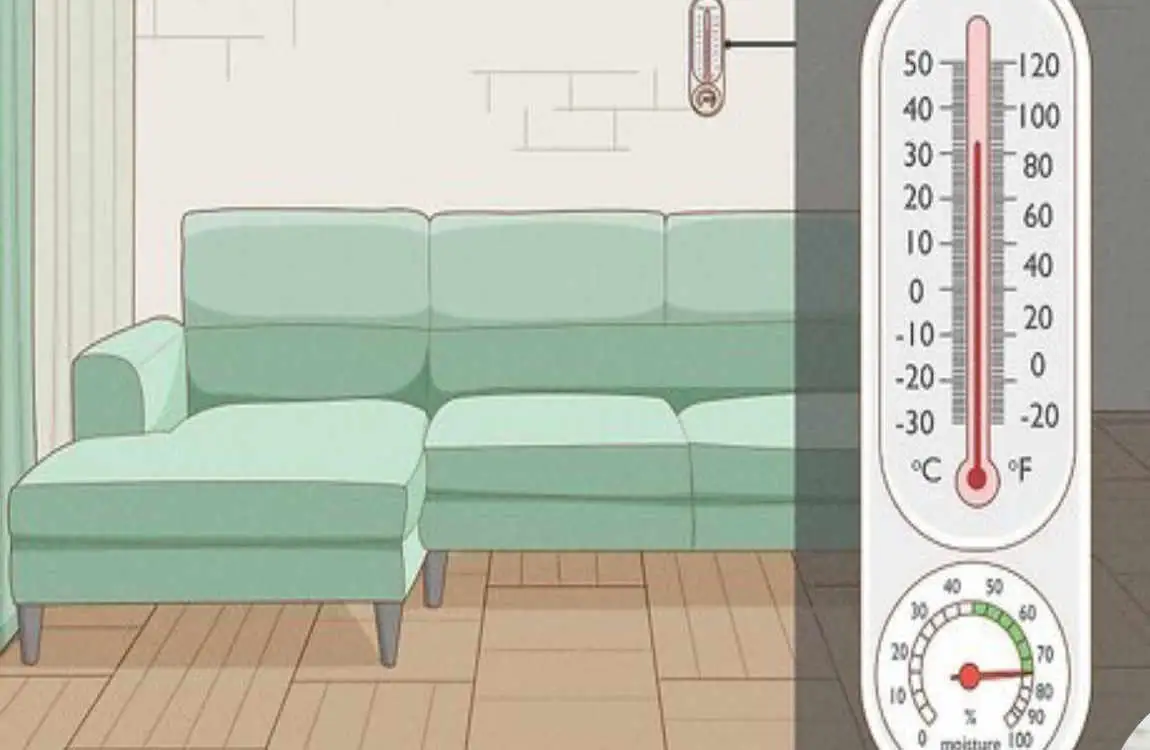
The Importance of Airflow
Proper ventilation and air circulation are essential for maintaining a comfortable indoor environment. When airflow is poor, moisture can become trapped indoors, leading to dampness and discomfort.
Enhancing Ventilation
To improve ventilation and reduce dampness, consider installing exhaust fans in areas prone to moisture, such as bathrooms and kitchens. Energy-efficient ventilation systems can also help maintain proper airflow throughout your home features.
High Outdoor Humidity and Its Effects Indoors
The Impact of Outdoor Humidity
High outdoor humidity levels can significantly affect indoor moisture levels, even when your AC is running. When the air outside is humid, it can be challenging for your AC to maintain a comfortable and dry indoor environment.
Using Dehumidifiers and Ventilation Fans
During periods of high outdoor humidity, consider using a dehumidifier alongside your AC to help control indoor moisture levels. Ventilation fans can also help remove excess humidity from your home.
How AC Can Actually Cause Dampness in Some Cases
While air conditioners are designed to remove moisture from the air, there are situations where they can actually contribute to dampness in your home.
Condensation and Cold Air
When cold air from your AC comes into contact with warm, moist surfaces, it can cause condensation to form. This condensation can lead to dampness, mold growth, and other issues if not properly managed.
Windows, Walls, and Ceilings Sweating
In some cases, the cold air from your AC can cause windows, walls, or ceilings to “sweat.” This occurs when the surface temperature drops below the dew point, causing moisture in the air to condense onto the surface.
Health and Structural Risks of Persistent Dampness Caused by AC
Persistent dampness in your home guide can have serious consequences for both your health and the structure of your home.
Potential Health Issues
Exposure to dampness and mold can lead to various health problems, including:
- Allergies
- Asthma
- Respiratory infections
If you or your family members experience any of these issues, it’s essential to address the underlying cause of the dampness in your home.
Impact on Home Structure
Dampness can also cause significant damage to your home’s structure, including:
- Mold and mildew growth
- Wood rot
- Peeling paint
Ignoring dampness issues can lead to costly repairs and reduced property value, so it’s crucial to act as soon as you notice a problem.
Step-by-Step Solutions to Fix Dampness When AC Is On
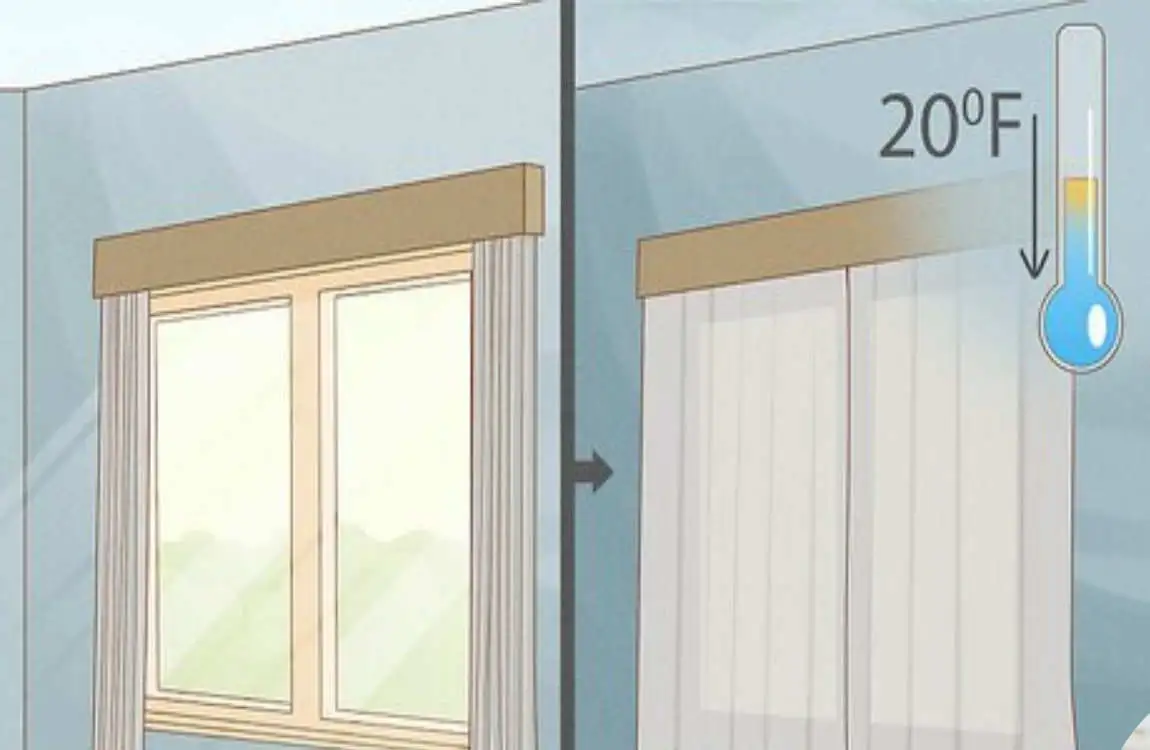
Now that we’ve explored the common causes and risks of dampness when your AC is running, let’s discuss practical solutions to address the issue.
Inspect and Clean Condensate Drain Lines
To prevent moisture buildup caused by clogged condensate drains, follow these steps:
- Locate the condensate drain line, which is usually near the outdoor AC unit or in the basement.
- Turn off the AC unit’s power before attempting any maintenance.
- Use a wet/dry vacuum or a specialized tool to gently clear any clogs or debris from the drain line.
- Pour a mixture of water and vinegar down the pipe drain to help prevent future clogs.
Check and Replace Air Filters Regularly
Maintaining clean air filters is essential for proper moisture removal and overall AC performance. Follow these tips:
- Check your AC’s manual for the recommended filter grade and replacement frequency.
- Inspect your air filters monthly and replace them as needed.
- Consider using higher-efficiency filters, such as MERV 8 or MERV 11, for better air quality and moisture control.
Schedule Professional AC Maintenance
Regular professional maintenance is crucial for keeping your AC system running efficiently and preventing dampness issues. During a maintenance visit, a technician will:
- Check and adjust refrigerant levels
- Clean the evaporator and condenser coils
- Inspect and clean the condensate drain
- Check and adjust airflow
Aim to schedule professional maintenance at least once a year, preferably before the cooling season begins.
Use Dehumidifiers Alongside AC During High Humidity
During periods of high outdoor humidity, a dehumidifier can help maintain a comfortable and dry indoor environment. Consider the following:
- Place the dehumidifier in the most humid areas of your home, such as the basement or laundry room.
- Choose a dehumidifier with a capacity suitable for the space you want to dehumidify.
- Empty the dehumidifier’s water collection bucket regularly to prevent overflow and maintain efficiency.
Improve Home Ventilation
Enhancing your home’s ventilation can help reduce dampness and home improve overall indoor air quality. Consider these options:
- Install exhaust fans in moisture-prone areas, such as bathrooms and kitchens.
- Use energy-efficient ventilation systems, such as heat recovery ventilators (HRVs) or energy recovery ventilators (ERVs).
- Open windows and doors when the weather permits to promote natural ventilation.
Control Indoor Temperature and Avoid Overcooling
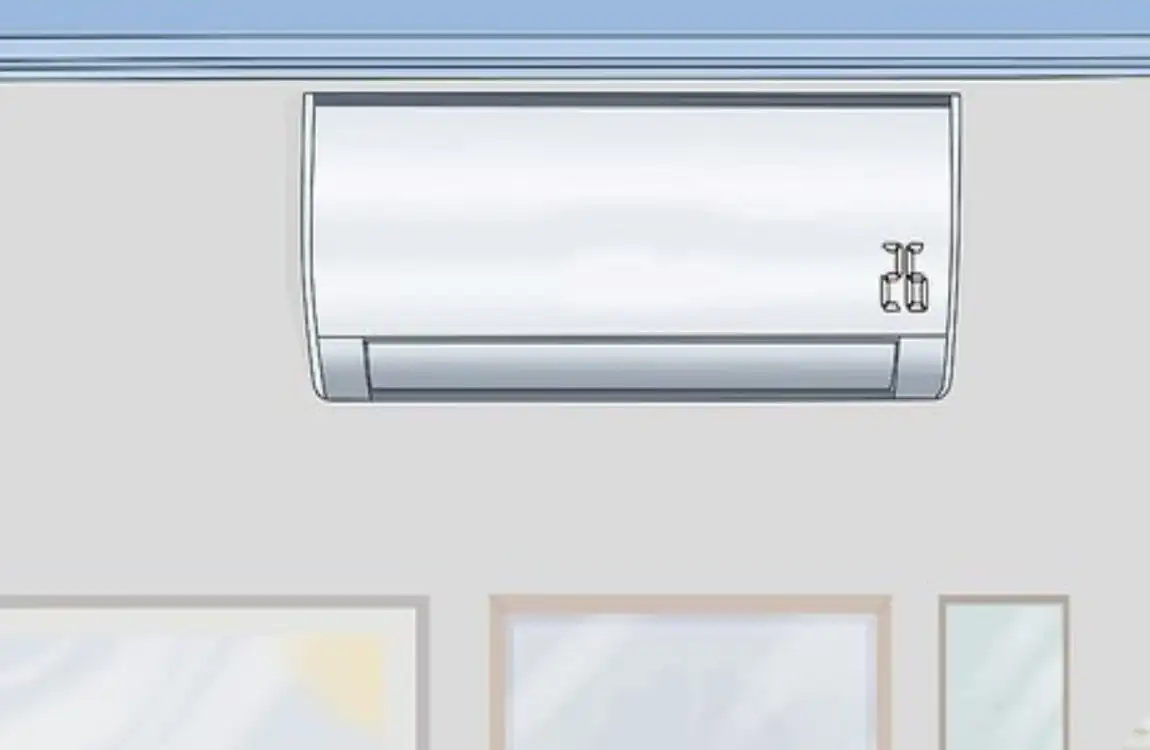
Maintaining an optimal indoor temperature can minimize condensation and dampness. Follow these tips:
- Set your thermostat to a comfortable temperature, typically between 72°F and 78°F (22°C to 26°C).
- Avoid overcooling your stylish home, as this can lead to condensation on cold surfaces.
- Use a programmable thermostat to maintain consistent temperatures and save energy.

